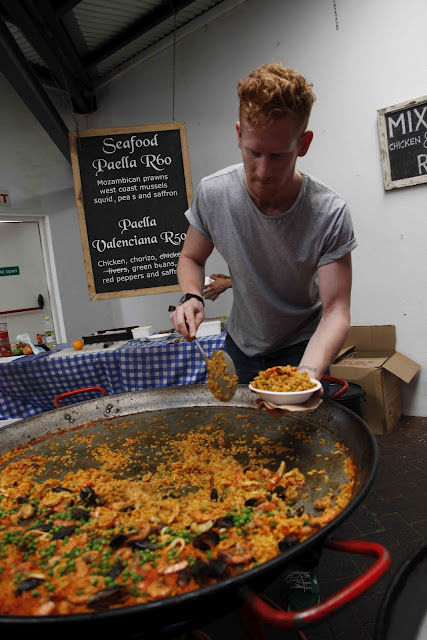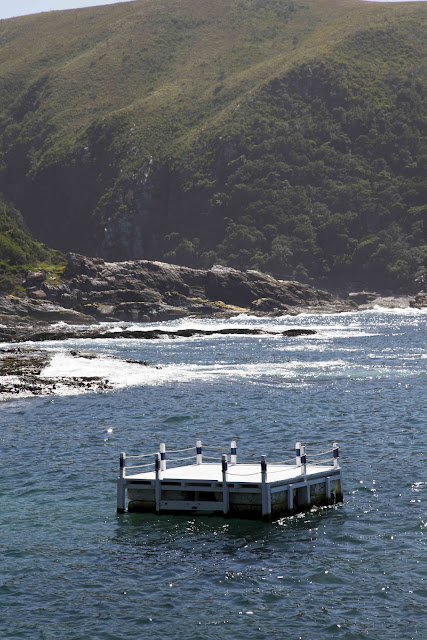Mama Nosintho and I
walked from the mini bus stop to her house. Along the way she stopped and
talked to everyone we met along the way. I soon became lost trying to
distinguish who was a cousin, who was a neighbor, or who was a kid she used to
babysit. We passed several braais and each time the people standing next to the
grill would wave and say “Molo unjani, Mama Nosintho- how are you?” And Mama
would reply “Siyaphila – I am alive, I am well.”
We reached her
house, a small grey stone house that was soundly built with a red sedan parked
under a small palm tree. The tree had been a housewarming gift from some
relatives after Mama and her husband moved there.
 |
| Mama's House. |
Mama brought me
inside and introduced me to her family. Her husband was away working and one of
her children was old enough to have her own flat so it was the four youngest
children living there at the moment. I was led to my room, which was about the
third of the size of the average dorm room. Just a bed, a few feet of floor
space and a shelf for some clothes. The other rooms in the house were equally
as small and with tiny windows latticed with bars to prevent break-ins.
As soon as I put my
clothes away, Sipho and Sango —the two boys—dragged me outside to play
football. The ball they used was made of compressed newspaper held together by
saran wrap. It wasn’t the prettiest ball, but it worked all the same.
 |
| Sipho |
Sipho reminded me of
a kid I used to babysit in New Hampshire. He acted shy when he first met me but
when I left to go home he almost refused to stop hugging me. Sango tried to act
more mature than his ten years of age. He wore a neon pink shirt, a baseball
cap, and cutoff jeans —the typical hip/hop dress of the region.
“So what subjects do
you like in school?”
“I like recess!”
giggled Sipho.
“What about you
Sango?” I asked the reserved ten year old.
“I like science and
math but I’m not the best at those,” said Sango.
“Do you want to go
into engineering after you graduate High School?”
“No, I want to be a
doctor” Sango said sternly.
Sipho and Sango’s
grandfather had recently suffered a stroke and had been in the hospital for the
past month. He wasn’t making much progress. Despite the free medical aid South
Africans receive, there was not enough staff or infrastructure at the township
hospital for therapy and rehabilitation. If their grandfather stabilizes,
passes all of his blood work and is able to stand, he will leave the hospital.
He still isn’t able to hold a cup or eat his own food, but that form of therapy
will come at home with the aid of his family.
 |
| Mama's sisters and mother tend to the grandfather. |
The children aren’t
allowed to visit their grandfather, so it is a raw subject. Like any child they
realize that their grandfather is sick, but how do you tell a five year old or
even a ten year old that a stroke means permanent brain damage? Or that if he
is able to leave the hospital, it won’t be the same man that they have known
their whole lives?



















































